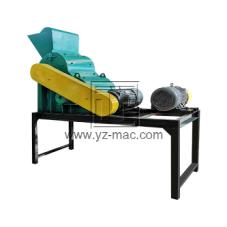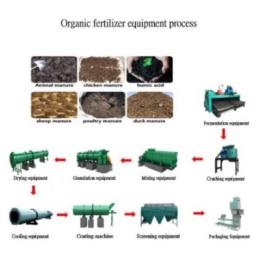Compost machinery
Compost machinery refers to a wide range of specialized equipment and machines used in the composting process. These machines are designed to efficiently manage and process organic waste materials, transforming them into nutrient-rich compost. Here are some key types of compost machinery commonly used in composting operations:
Compost Turners:
Compost turners, also known as windrow turners or compost agitators, are machines specifically designed to turn and mix compost piles. They enhance aeration, moisture distribution, and decomposition by effectively mixing and fluffing the compost materials. Compost turners come in various sizes and configurations, including self-propelled, tractor-mounted, and towable models.
Compost Shredders:
Compost shredders, also called chipper shredders or green waste shredders, are machines used to break down larger organic waste materials into smaller particles or chips. These machines facilitate the shredding and grinding of materials such as branches, leaves, garden waste, and food scraps. Shredding the waste accelerates decomposition and creates compostable materials.
Compost Screens:
Compost screens, also known as trommel screens or vibrating screens, are used to separate larger materials and debris from the finished compost. They ensure that the final compost product is free from oversized particles, rocks, or contaminants. Compost screens can be customized with different screen sizes and configurations to achieve the desired compost particle size.
Compost Bagging Machines:
Compost bagging machines automate the packaging and bagging of compost products. These machines efficiently fill and seal compost bags, improving productivity and ensuring consistent packaging. Compost bagging machines can handle various bag sizes and types, providing flexibility in packaging options for different compost applications.
Compost Granulators:
Compost granulators, also called pelletizing machines, are used to convert compost into uniform granules or pellets. These machines enhance the handling, storage, and application of compost fertilizer. Compost granulators typically involve processes such as drying, grinding, mixing, and pelletizing to produce consistent and high-quality compost granules.
Compost Mixers:
Compost mixers, also known as compost blending machines or mix-turning equipment, are used to mix different compost materials to create a homogeneous blend. They facilitate the blending of various feedstocks, such as green waste, food waste, and animal manure, to achieve a balanced and nutrient-rich compost mixture. Compost mixers ensure uniform distribution of materials and optimize compost quality.
Other Auxiliary Equipment:
In addition to the above-mentioned machines, there are various auxiliary equipment used in composting operations. These include moisture meters, temperature probes, conveyors, loaders, and biofilters for odor control. These auxiliary equipment assist in monitoring and optimizing the composting process to achieve desired compost quality and operational efficiency.
Compost machinery plays a vital role in the efficient management and processing of organic waste materials, promoting sustainable waste management practices and the production of high-quality compost. The specific selection of compost machinery depends on the scale of composting operations, feedstock characteristics, desired compost quality, and budget considerations.







